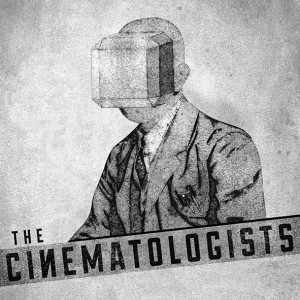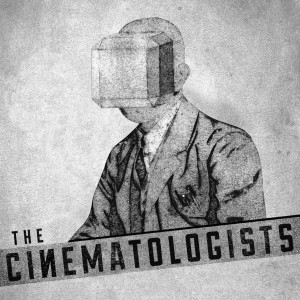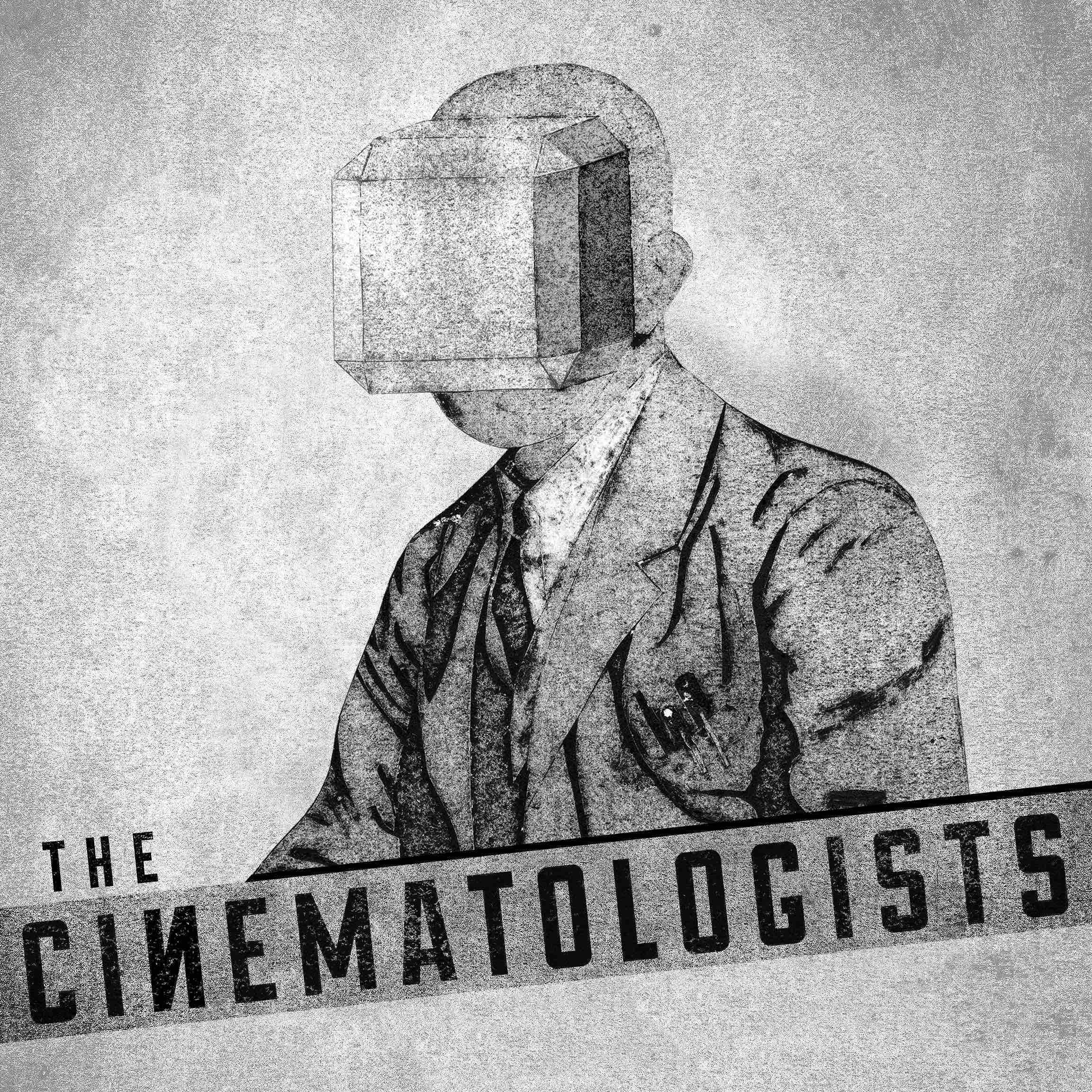Episodes
Episodes



Friday Oct 26, 2018
A Ghost Story
Friday Oct 26, 2018
Friday Oct 26, 2018
For this episode, Neil and Dario were in the room together for the first time in a while and what an occasion it was. David Lowery's modern masterpiece A Ghost Story is one of Dario's favourite films of recent years and Neil was experiencing it for the first time.
The result was an overwhelmingly emotional evening for the hosts (particularly Neil who struggled to hold it together) and the majority of the large audience - the beauty of the shared experience feels palpable on the tape, and we hope it transmits to listeners.
It was one of the greatest nights of the podcast to date, a really special communal experience where the uniqueness of the shared experience that is Cinema felt more alive than it has in a long time. It reminded many present of what makes Cinema so special, and it doesn't hurt that the film is incredible. Hear everyone wax lyrical.
Special thanks to Kingsley Marshall at Film at Falmouth for making Dario's visit happen. Please enjoy the first full episode in a long time where Neil and Dario are in the same room and on the same stage for the entire, emotional duration.
Subscribe on iTunes
Visit the Cinematologists Website



Wednesday Oct 24, 2018
London Film Festival 2018 w/Filmmaker and Critic Marbelle
Wednesday Oct 24, 2018
Wednesday Oct 24, 2018
The London Film Festival always falls at a tricky time for the Cinematologists, coinciding with the start of the academic year. So in Episode 70 we were delighted that Dario was able to speak to the Editor-in-Chief of Directors Notes Marbelle. Covering the festival every year Marbelle searches out the films and filmmakers who might be slightly below the radar and puts together best of the festival piece for his now long-running website, which is always worth checking out along with the regular interviews both written and podcasted. Along with his festival picks Dario discusses with Marbelle the difference between written and audio interviews, film festivals in contemporary film culture and being disappointed by over-hyped films.
Neil and Dario pick up on these themes at the end of the interview and discussing some further films that Dario has seen and Neil history of being a festival organiser.
Twitter: @MarBelle @WeAreDN
Director's Notes online Magazine: https://directorsnotes.com/
*Apologies for the variable sound quality on this episode - we hope it doesn't spoil your enjoyment too much



Saturday Sep 29, 2018
The Piano (w/ Ellen Cheshire)
Saturday Sep 29, 2018
Saturday Sep 29, 2018
The latest episode, and the first of the season from the Falmouth bureau, is a celebration and examination of the work of Jane Campion.
Neil is joined on stage by author Ellen Cheshire to introduce a 25th anniversary screening of The Piano, in front of a packed audience of film fans and (new) film students. What follows the screening is a lively debate about the film, problematic viewing, feminism and more. In the episode itself Dario gives his astute views on Campion’s work and her most widely known and regarded film.
The pair also talk about new BFI Blu-ray releases The Comfort of Strangers and Eye of the Needle, Josh Appiganesi’s surreal psycho-thriller meta-doc Female Human Animal - which is due for release in cinemas over the next few weeks, Bertrand Mandico's Boro In The Box and Andrew Haigh's Lean On Pete.
-----
How to watch The Piano (UK/US):
Rent/Buy on iTunes
25th Anniversary UK Cinema Tour
Episode Links -
Ellen Cheshire Website
Ellen Cheshire on Twitter
In The Scene: Jane Campion by Ellen Cheshire
The Comfort of Strangers
Eye of the Needle
Female Human Animal
Female Human Animal on Twitter
See it at DocHouse on Oct 7 with Josh and Chloe Q&A
Subscribe on Apple Podcasts: https://itunes.apple.com/gb/podcast/the-cinematologists-podcast/id981479854?mt=2



Saturday Sep 15, 2018
American Animals director Bart Layton
Saturday Sep 15, 2018
Saturday Sep 15, 2018
In the second in our early season doubleheader, we present a live Q&A from the Duke of York's Picturehouse in Brighton with Dario talking to the director of American Animals Bart Layton. The discussion touches on the amalgamations of fictional and documentary aesthetics (linked also to Bart's previous Bafta award-winning film The Imposter, the development of a script that changes over time, actors playing real-life characters who also appear in the film, and the current social and political climate as a backdrop for stories about white masculinity.



Saturday Sep 15, 2018
Film-Philosophy Conference 2018
Saturday Sep 15, 2018
Saturday Sep 15, 2018
Season 8 of the podcast returns with an episode of discussion from the Philosophy-Conference in Gothenburg which Dario attended over the summer. The theme of the event was Feminist Film-Philosophy which was driven by the festival director Dr. Anna Backman Rogers who discusses her aims for the conference putting female filmmakers and philosophers front and centre, she also talks about her work with the MAI journal and discusses her own research particularly her analysis of Sofia Coppola as a feminist auteur.
Dario then speaks to Dr. Catherine Wheatley her keynote speech at the conference which looked at the Stanley Cavell's writings on gender and film, particularly in the light of criticisms he received from Tania Modleski who accused him of practicing a "feminism without women". Wheatley uses this dialogue as a starting point for discussions about who Film-Philosophy speaks for an to.
In the last conversation, Dario and Catherine are joined by Dr. David Sorfa for a wide-ranging discussion around the discipline of Film-Philosophy including its cross-over with film studies, how film-philosophy should be taught, and the gender questions around which filmmakers and philosophers should be studied.
Shownotes:
MAI Journal: Feminism and Visual Culture
Catherine Wheatley's obituary of Stanley Cavell - Sight and Sound
David Sorfa - What is Film-Philosophy?



Tuesday Jul 10, 2018
Steve McQueen
Tuesday Jul 10, 2018
Tuesday Jul 10, 2018
To coincide with his exhibition at CAST Cornwall as part of the Groundwork programme, we teamed up with Groundwork and CAST, and the Thomas Dane Gallery in London to record artist and filmmaker Steve McQueen in conversation with Nicholas Serota at the WTW Plaza Cinema in Truro and are honoured to share that conversation with our listeners.
The episode is based around the conversation between McQueen and Serota, and Dario and Neil’s discussion of McQueen as a filmmaker and visual artist. Steve’s work in cinema arguably makes him one of the most vital, fascinating and important working British filmmakers but as the conversation elucidates it is merely a different form of aesthetic expression for a visual artist who has created a unique, formidable and exhilarating body of work since emerging on to the British art scene in the early 1990s.
The episode also includes Josie Cockram from Groundwork discussing the programme and the work of CAST Cornwall. More information on Rachael Jones’s film Tracing Granite that is discussed in the episode as well as links to other pieces and reflections related to the programme can be found in the RECORD section of the Groundwork website.
Information on the artworks discussed by Steve McQueen on the episode:
Unexploded (2007)
Gravesend (2007)
Bear (1993)
Deadpan (1997)
Drumroll (1998)
7th Nov. (2001)
Charlotte (2004)
Western Deep / Carib’s Leap (2002)
Queen and Country (2007 – 2009)
Hunger (2008)
Static (2009)
Shame (2011)
12 Years a Slave (2013)
End Credits (2012 – Ongoing)
Ashes (2015)
*This episode contains strong language



Monday Jul 02, 2018
Lek and the Dogs (w/ Dir. Andew Kötting)
Monday Jul 02, 2018
Monday Jul 02, 2018
Andrew Kötting is a unique voice in British Audio-Visual culture and after seeing and admiring much of his work it was a great pleasure to welcome him onto the podcast to introduce his enigmatic new film Lek and the Dogs. Loosely based Hattie Naylor's play Ivan and the Dogs, itself the true story of a Russian child abandoned to Moscow streets to be 'raised' by the cities stray dogs, the film is both intensely personal but perhaps more concerned with grand social and philosophical questions that his previous work. The third in his 'Earthworks' trilogy, Lek brings Kötting's trademark eclecticism in both visual and aural style and in terms of the cinematic, artistic and literary references he mines. Samuel Beckett, Montaigne, Tarkovsky, Margaret Atwood, Plato, Nicolas Roeg, John Berger, Dziga Vertov, among many others, are all points of reference in this unique cinematic essay.
Dario is joined by Andrew Kötting at his local cinema, The Electric Palace in Hastings, for a very special screening and a wide ranging discussion about the film and his creative work.
The film can be viewed on MUBI until the 7th of July.
Show notes
Ben Nicholson's review of Lek and the Dogs in Sight and Sound
Kermode Uncut: The Kotting Club
*This episode contains strong language.



Sunday Jun 17, 2018
Unsocial Audiences
Sunday Jun 17, 2018
Sunday Jun 17, 2018
In this episode, we focus on research from a special themed edition of the Participations journal of audience research looking at the notion of unsocial audiences and non-traditional, extended and disruptive forms of spectatorship. Dario's contribution to the journal was an article on a project examining the potential of second screening as a tool for film analysis and this podcast features his interviews with three of the other contributors. He speaks to the editors of the edition Steve Gaunson and Tessa Dwyer about the background and development of the issue and their own articles on disruptive cinema in Silent Era and the phenomenon of Japanese bullet screenings. Dario then discusses the phenomena of Second Screening directly with James Blake how outlines its uses for new forms of transmedia storytelling. Finally, Dario talks to Helen Kennedy who has researched extensively on extended, live, and theatrical possibility of the cinematic specifically here in terms of Secret Cinema.
Show Notes
Dwyer, Tessa & Steve Gaunson: 'Un/social cinema – audience decorum revisited
Blake, James: 'Second Screen interaction in the cinema: Experimenting with transmedia narratives and commercialising user participation'
Llinares, Dario: '"Please turn your phone on": Analysing outcomes of second-screen spectatorship using Social Media in the cinema space'
Dwyer, Tessa: 'Hecklevision, Barrage Cinema and Bullet Screens: An intercultural analysis'
Gaunson, Steve: 'The 'Picture' habit: Bad decorum and delinquents at the Silent Cinema'
Kennedy, Helen: '"Join a cast of 1000s, to sing and dance in the Revolution": the Secret Cinema "Activist" brand and the commodification of affect within "experience communities"'
The rest of the articles from this themed section can be found here: http://www.participations.org/Volume%2014/Issue%202/contents.htm






